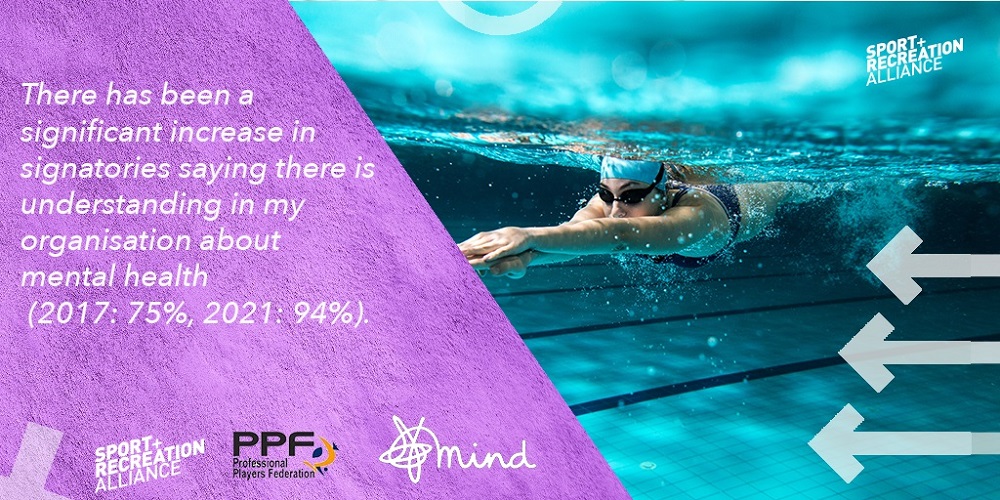

Following the recent publication of Mind’s ‘Mental Health in Elite Sport’ report, the Mental Health Charter for Sport and Recreation steering group has issued its own ‘Seven Years of Changing Culture’ report highlighting the progress made across the wider sports and recreation sector since 2015 when the Charter was established.
The Charter, which used the power of sport and recreation to promote mental wellbeing through physical activity, has gained 470 signatories from a wide-ranging cross section of sporting organisations from grass roots to elite level and a selection of case studies are included throughout the report to showcase what has been achieved.
Paul Farmer CBE, Chief Executive of Mind, said:
“Since its introduction in 2015, the Mental Health Charter for Sport and Recreation has set out how organisations can adopt good mental health practice to make activities inclusive, positive and open to everyone. But it is only through the collaborative efforts of the 470 signatories, that we have seen improvements in the mental health culture for people working, volunteering and taking part in sport and physical activity.”
Lisa Wainwright MBE, CEO of the Sport and Recreation Alliance, said:
“The Mental Health Charter for Sport and Recreation has been instrumental in changing how mental health is discussed and prioritised within the sector. The Alliance is incredibly proud to have partnered with Mind and the Professional Players Federation to drive the development of the Charter and the number and diversity of signatories demonstrates the
phenomenal commitment of the sector to make improvements in this area.”
Brendon Batson OBE, Chairman of the Professional Players Federation, said:
“I am delighted with the impact that the Mental Health Charter has had on professional sport and I pay tribute to the role of the Player Associations and our Charter partners in helping to drive this change. There is now so much more focus on players’ mental wellbeing combined with improved support networks for players. However, there is still work to do to ensure that
mental health is given just as much priority as the physical health of players, especially as sport recovers from the long-term effects of the pandemic.”
Looking forward, although the Charter will no longer be seeking new signatories, this report demonstrates the change in culture across sport towards mental health and relevant resources and links to support will continue to be accessible on the Sport and Recreation Alliance’s Charter webpages.
Summing up the impact of the Charter and the vision for the future, Paul Farmer said:
“The achievements of the last seven years should not be underestimated but our work is far from finished. The Charter has stimulated an abundance of mental health support for sport and physical activity organisations that will drive this work going forward. It’s only with this support and the commitment of organisations that we can truly embed mental health across the sport and recreation sector.”
You can read the full Seven Years of Changing Culture report here.